Hello Goodbye in Farsi Greeting (Persian)

Salâm
Be FarsiMonde xosh umadin
This is the first page that beginners may start with since it is named as “basics in Farsi”. It is why we are welcoming you in Persian. We are honored to accompany you in your discovery of Persian language and the land of Persia. In this section, you are going to learn the basic greetings in Farsi and a few cultural facts. So, let’s start our journey.
In Farsi, you can say hello in a couple of ways, but the most frequent is “salâm”. Almost all conversations start with this magic word. Even if you want to greet someone by other expressions such as “good morning”, you should first say “salâm” and then “sobh be xeyr”. To know the importance of saying “hi” you only need to know that Iranians believe “salâm salâmati miyâre”, saying “hi” brings health. Moreover, age differences and social ranks play important roles among Iranians. So it is the younger people’s duty to say “salâm” first.
The level of formality has also impact on the way you ask “how are you?” Here are the phrases ordered from informal to formal:
– xubi? very friendly
– četori? friendly
– hâlet četore(h)? friendly
– hâletun četore(h)? formal
The difference between “hâlet četore(h)?” and “hâletun četore(h)?” is that the former is singular while the latter is plural. In Farsi, you can use plural pronouns to address a person who is older than you or who is not a person you know.
In Iran, when we meet a close friend or relative, we ask not only how she/he is but also how her/his family members are. This is a part of greeting when we meet up or when we talk on the phone. So don’t get surprised if somebody asks you if your parents are fine.
Some Basic Phrases
| English | Pronunciation | Farsi | |
|---|---|---|---|
| hello | salâm | سَلام | |
| good morning | sobh be(h) xeyr | صُبح به خِیر | |
| good time | vaqt be(h) xeyr | وَقت به خِیر | |
| good day | ruz be(h) xeyr | روز به خِیر | |
| good evening | ‘asr be(h) xeyr | عَصر به خِیر | |
| yes | bale(h) | بَله | |
| yep | âre(h) | آره | |
| no | na(h) | نَه | |
| yeah (informal) | âre(h) bâbâ | آره بابا | |
| nop (informal) | na(h) bâbâ | نَه بابا | |
| O.K. | bâše(h) | باشه | |
| all right | xeyli xob | خِیلی خُب | |
| are you ok? | xubi? | خوبی؟ | |
| how are you? | četori? | چِطوری؟ | |
| how are you? | hâlet četore(h)? | حالِت چِطوره؟ | |
| thanks | mersi | مِرسی | |
| thank you | mamnun | مَمنون | |
| thanks a lot | xeyli mamnun | خِیلی مَمنون | |
| thank you | tašakor | تَشَکُر | |
| I am fine, and you? | man xubam, to četori? | مَن خوبَم، تو چِطوری؟ | |
| what’s up? | če(h) xabar? | چه خَبَر؟ | |
| nothing new | salâmti, xabari nist | سَلامَتی، خَبَری نیست | |
| excuse-me | bebaxšid | بِبَخشید | |
| sorry | mote’assefam | مُتَأسِّفَم | |
| I don’t speak Persian | man fârsi balad nistam | مَن فارسی بَلَد نیستَم | |
| I don’t know | nemidunam | نِمی دونَم | |
| I didn’t understand | nafahmidam | نَفَهمیدَم | |
| please | lotfan | لُطفاً | |
| there you go | befarmâ, befarmâyin | بِفَرما/بِفَرمایین | |
| you’re welcome | xâheš mikonam | خواهِش می کُنَم | |
| have a good day | ruz-e xubi dâšte(h) bâši | روزِ خوبی داشته باشی | |
| see you | mibinamet | می بینَمِت | |
| goodbye | xodâhâfez, xodânegahdâr | خُداحافِظ/خُدانِگَهدار | |
| stay healthy (an answer to goodbye) | be(h) salâmat | به سَلامَت | |
| good night | šab be(h) xeyr | شَب به خِیر | |
| have a good night | šabet xoš | شَبِت خوش | |
| have a good sleep | xub bexâbi | خوب بِخوابی |
If you want to continue this road you can find more than hello goodbye in Farsi phrases in this post: Click Here
Saying Hi in Persian
In Farsi, you can say hello in a couple of ways, but the most frequent is “salâm”. Almost all conversations start with this magic word. Even if you want to greet someone by other expressions such as “good morning”, you should first say “salâm” and then “sobh be xeyr”. To know the importance of saying “hi” you only need to know that Iranians believe “salâm salâmati miyâre”, saying “hi” brings health. Moreover, age differences and social ranks play important roles among Iranians. So it is the younger people’s duty to say “salâm” first.
The level of formality has also impact on the way you ask “how are you?” Here are the phrases ordered from informal to formal:
– xubi? very friendly
– četori? friendly
– hâlet četore(h)? friendly
– hâletun četore(h)? formal
Saying Goodbye in Persian
Persian speakers often use the phrase “xodâhâfez”, or the short form of it “xodâfez” to say goodbye. The phrase means “God keeps you safe”. As in other languages, there are more different phrases to say goodbye, such as “be salâmat”, “khodânegahdâr” or “tâ fardâ”. “xodânegahdâr” is semantically the same as “xodâhâfez”, but it is a bit more formal.
Yes No in Farsi
“Yes” and “no” are the easiest words to learn in all languages. It’s the same in Persian, but you’d better to keep in mind some tips:
– “bali” and “xeyr” are mostly written forms and we don’t use them in daily talk, even in formal situations. When someone calls our name, we say “bale(h)” to answer not “âre(h). In other situations both words can be used according to formality level. “Bale(h) is more formal than “âre(h)”.
– There are informal ways of saying “yes” such as “âre(h) bâbâ” or even “hâ bâbâ” and “no” such as “na(h) bâbâ” or “noč”. The latter can be considerd as rude, though.
Thanking in Farsi
Have you ever heard about “tâ’rof” in Iranian culture? If yes, you know how complicated it is. If not, we try to explain this important cultural fact in our videos and lessons. Ready to start? Here are some tips for beginners:
– In Iran, we usually thank people more than once for any favor they do for us. It is why we have borrowed thanking words from other languages such as “mersi” and “tašakkor” to enrich our thanking culture. In this video, you are learning a couple of these phrases. There are many more to learn.
– One of the very famous “tâ’rof” terms is “qabel nadâre(h)” which literally means “it doesn’t have any value”. It can be translated as “de rien” in French or “it is nothing” or “don’t mention it” in English. You may hear this phrase anytime you ask for price, do payment or receive a gift. So, try to learn and get used to this expression.
– In Farsi, you cannot leave a “tâ’rof” unanswered. For thanking ones, you can usually use “xâheš mikonam”.
Greetings in Farsi
In Persian, there are different ways for greetings. The phrase that we choose usually depends to the context and the formality degree. In many languages including Persian, one of the most important politeness formulas is using plural you, “šomâ” to address people who are older than us or have higher rank. You can apply the same rule for greeting people. Let’s take a look at the phrases you are learning in this video:
– xubi? → very friendly
– četori? → very friendly
– hâlet četore(h)? → for people in the same rank as you
– hâletun četore(h)? for people who are older than you or in higher rank than you
– hâl-e šomâ četore(h)? for people who are older than you or in higher rank than you (can be used in written form)


I love interacting with this program and love the short skits.
Thanks, Suzanne. We are happy that you found FarsiMonde Helpful.
Very informative and educational internet platform.